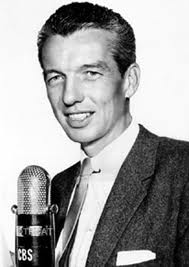My Big Finish Twenty
September is the 20th Anniversary of Big Finish productions turning out audio dramas and this month we’re celebrating with a series of articles looking at twenty great releases from Big Finish.
I should say that this is NOT a “Top 20 Big Finish” releases article, since I’ve not listened to every single Big Finish release. Some are only available on CD and shipping rates from the UK can be prohibitive. Some are for series that I’ve never gotten into like Blake’s 7 or Dark Shadows. Others I’d like to listen to someday but haven’t gotten around to. In addition, Big Finish has lost the license for some other properties such as Sapphire and Steel.
It’s also not my top twenty favorite releases. That would be heavily skewed towards Sci-Fi and certain Doctor Who actors. Rather this is a list of twenty great Big Finish releases. There’s still a lot of Science Fiction and Doctor Who on the list, but my aim is to cover a bit of the breadth of Big Finish’s catalog and offerings. I do have these in an order of quality. Comparing vintage mystery show revivals to madcap Science Fiction is a bit of a challenge, but we try.
20) Hound of the Baskervilles:
There have been many adaptations of the Hound of the Baskervilles, but this may be my favorite. Director/Star Nicholas Briggs and writer Richard Dinnick decided to do an absolutely faithful adaptation, which is impressive as most writers can’t seem to resist to tinkering with one of the greatest mystery novels of all time. What we get is the richness of the story, along with super but not intrusive sound effects. The cast is superb and professional, Briggs is a solid Holmes, and Richard Earl does a great job bringing Watson to life. One of the most remarkable facts about this is that the entire recording was done in a single day. It’s a must-listen-to for Holmes fans.
Buy from Big Finish
Buy from Amazon
19) Light at the End:
For the Fiftieth Anniversary of Doctor Who, on television, the Tenth and Eleventh known regenerations of the Doctor joined forces with the previously unknown War Doctor (played by John Hurt.) Yet, that left a lot of Doctors out. One of the key premises of Doctor Who is that when his life is in mortal jeopardy, the Doctor can regenerate into another human form.
Light at the End is the Anniversary special for all the other Doctors (save Christopher Eccleston, who took part in neither.) The five living Doctors from before the revived series (Tom Baker, Peter Davison, Colin Baker, Sylvester McCoy, and Paul McGann) star along with one of their companions, with three now-deceased Doctors played by appropriate substitutes but only making brief appearances as they battle their long-time foe, The Master.
The most surprising thing about this story is that despite all these characters, the story is coherent. Writer Nicholas Briggs (who didn’t want to do a multi-Doctor story) wrote a script that managed to keep everything in balance and give each Doctor something to do, and give the script a coherent plot. Light at the End is a superb celebration of fifty years for the Doctor Who Series that still manages to hold up as a well-written, beautifully scored and directed production.
Buy from Big Finish
Buy from Amazon
18) Doctor Who:The Lost Stories The First Doctor Box Set
This was from Big Finish’s range of “Lost Stories,” which were adaptations of Doctor Who scripts that were written or proposed but never made for a variety of reasons. While the initial series focused on Colin Banker’s canceled second season as the Doctor, this expanded to the rest of the classic Doctors.
The First Doctor Box Set focused on two scripts written for William Hartnell’s First Doctor by Turkish writer Moris Farhi in 1964. During Hartnell’s time on Doctor Who, the series was split half between Science Fiction stories and historicals. The bulk of the box set is taken up by the story, Farewell Great Macedon, an epic script that puts the Doctor and his companions into the thick of events as they meet Alexander the Great just before his death.
Surviving cast members Carole Ann Ford and William Russell return as the companions Susan and Ian and voice the roles of their departed co-stars and provide narration in a brilliantly written story that manages to capture the feel of Early Doctor Who as well as pulling readers into the midst of this key time in history.
The second story, “The Fragile Yellow Arc of Fragrance” is good but a bit high-concept and it’s hard to see how it ever would have worked on television. At less than an hour long, it doesn’t have time to be fully developed. Still, if the second story is largely forgettable, the first story makes this box set well worth listening to.
Buy from Big Finish
Buy From Amazon
17)The Avengers: The Lost Episodes, Volume 3
When Americans think of the British TV series, The Avengers, they think of Emma Peel and John Steed bringing their larger-than-life adventures to America. They aired over the ABC TV network in Prime Time. Yet, before the Avengers came to America, there were three seasons of the series shot in the U.K. The first season of the series from 1961 was almost completely lost with only three episodes and part of another surviving.
Big Finish brought all 26 episodes of the first season to life in their Avengers: The Lost Episodes series which starred Julian Wadham as John Steed and Anthony Howell as Dr. David Keel, a general practitioner who joined Steed on missions after his fiancee is murdered by a gangster in the first episode.
The Lost Episodes are a much more straightforward 1960s crime drama, although later episodes do get into espionage. Big Finish does a great job creating the feel of the 1960s through sound effect, music, and the type of performances given, and several of these lost episodes show the first season of Avengers was good even in its early days.
For me, Series 3 is the best set of the series. Click here my full review of Series 3.
Buy from Big Finish
Buy from Amazon
16) How to Win Planets and Influence People
Not only can the Doctor regenerate, but so can his foes from his own race. Big Finish has added some new regenerations for some of the Doctor’s Time Lord enemies. Big Finish cast comedian Rufus Hound as a new version of the Meddling Monk and he’s had some great stories. However, my favorite thing Rufus Hound has done for Big Finish is the short trip, “How to Win Planets and Influence People.” This is part of the Doctor Who Short Trip range. Those usually feature a short Doctor Who story of between 25-40 minutes that’s available as a download only. However, this is a bit different.
In this story, the meddling monk is giving a speech to a corporate convention as a motivational speaker, giving attendees a crash course in supervillainy and detailing how to defeat the Doctor with his many examples of how he failed to defeat the Doctor.
The production does a great job playing off of Hound’s stand up skills, while also poking fun at Ted Talks, as well Sci-Fi genre conventions for both Doctor Who villains and supervillains in general. Yet, it becomes clear more is going on than just a speech as the story goes on. Overall, this release is just a hoot and a great showcase for Mister Hound’s talent.
Buy from Big Finish
If you enjoyed this post, you can have new posts about Detective stories and the golden age of radio and television delivered automatically to your Kindle.
This post contains affiliate links, which means that items purchased from these links may result in a commission being paid to the author of this post at no extra cost to the purchase


